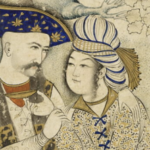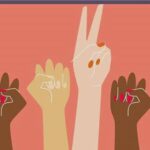CEU Democracy Institut, Budapest (Web) und Österreichisches Kulturforum Budapest (Web)
Time: 06.-08.10.2025
Venue: Budapest
Proposals by: 01.05.2025
This conference aims to foster interdisciplinary dialogue on the historical and political dimensions of infant care, child welfare, and family policies in 20th-century Hungary. The conference will examine the political, social, cultural, and gender dynamics that shaped child-rearing practices and state interventions in family life. Understanding the professionalization of childcare requires examining developments from WWI to the present day. This allows for an examination of the diverse political and ideological regimes that have shaped the childcare field, as well as the memory politics that continue to influence its trajectory. In this way, particular emphasis is placed on the life and work of Emmi Pikler (1902–1984), a doctor and childcare specialist who influenced the evolution of infant care in post-WWII Hungary and established a highly successful international organization. Although Pikler was one of the most influential childcare experts in socialist Hungary, her life and work remain largely unexplored from an interdisciplinary perspective.
The organisers invite researchers, historians, sociologists, psychologists, child welfare and care professionals to examine the historical development of infant and child care in Hungary, with a particular focus on Emmi Pikler’s work and the role of infant homes (csecsemőotthonok) in shaping child protection policies and the care of young children by families. The objective is to illuminate how child protection systems were shaped by social necessities and political aspirations, offering invaluable insights into the contemporary challenges in child welfare policy. Presentations that explore the political implications of child welfare policies, the interplay between government and society in child welfare, care, and protection, and the impact of ideologies on childcare systems are highly encouraged. Read more and source … (Web)
Proposals can address, but are not limited to, the following topics: Emmi Pikler’s Contributions and Political Context | The Functioning of Infant Homes and State Intervention | Child-Rearing Ideologies | Health and Welfare Policies in a Political Lens | Nation-Building and Childcare | Women’s Roles and Gender Politics | The Politics of Poverty and Child Neglect | Comparative Political Perspectives

 Anna Horstmann und Martin Lutz, Univ. Bielefeld
Anna Horstmann und Martin Lutz, Univ. Bielefeld  Binghamton University’s Center for Medieval and Renaissance Studies (CEMERS)
Binghamton University’s Center for Medieval and Renaissance Studies (CEMERS)  Frauen- und Geschlechtergeschichte in Österreich – Newsletter #01 für 2024
Frauen- und Geschlechtergeschichte in Österreich – Newsletter #01 für 2024 Department of American Studies at the Univ. of Innsbruck; Ben Robbins, Devon Anderson, and Matthias Klestil
Department of American Studies at the Univ. of Innsbruck; Ben Robbins, Devon Anderson, and Matthias Klestil  Journal „Kvinder, Køn & Forskning|Women, Gender & Research“; Univ. of Copenhagen
Journal „Kvinder, Køn & Forskning|Women, Gender & Research“; Univ. of Copenhagen